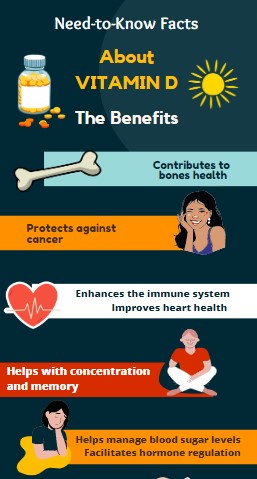Vitamin D Supplements May Lower Melanoma Risk and Improve Skin Health, Study Finds.

As a health enthusiast, you know how important it is to maintain optimal levels of vitamin D in your clients’ bodies. Not only can this help them stay healthy and perform better, but new research suggests that it may also lower their risk of developing melanoma.
In a recent study by the University of Eastern Finland found fewer cases of melanoma among regular users of vitamin D supplements than non-users. The results showed that people who took vitamin D supplements had a significantly reduced risk of developing melanoma—a whopping 78% lower than those who didn’t take the supplement. The study included nearly 500 people with a higher risk of skin cancer and analysed their background, medical history, and skin.
People were divided into groups based on their use of vitamin D supplements and analysed for skin changes and melanoma risk. Regular users had a considerably lower risk of melanoma compared to non-users.
What is Melanoma?
Melanoma is a type of skin cancer that starts in cells called melanocytes, which produce a pigment that gives colour to our skin. Normally, these cells grow and divide in a controlled way, but sometimes they can start to grow out of control and form a type of cancerous growth known as a melanoma. This type of skin cancer can be dangerous if not detected and treated early, as it can spread to other parts of the body. To help prevent melanoma, it's important to protect your skin from too much sun exposure and to check for any unusual moles or skin changes that may be signs of skin cancer.
How much vitamin D should you take?
The optimal dose of vitamin D for its benefits remains to be answered. The study suggests that following national intake recommendations is important.
In the UK, the recommended daily intake of vitamin D for adults is 10 micrograms (mcg). The NHS advises that people get most of their vitamin D from sunlight on their skin, and to have a balanced diet that includes some vitamin D-rich foods, such as oily fish, red meat, liver, eggs, and fortified foods like certain types of fat spreads and breakfast cereals.
In the USA, the recommended daily amount of vitamin D for adults is 600-800 international units (IU) depending on age and other factors. The Institute of Medicine (IOM) states that most people can get enough vitamin D from sunlight exposure, food, and supplements. The recommended daily intake can be met through a combination of food sources and supplements.
It's important to note that these are general guidelines, and individuals may need more or less depending on their individual health needs and circumstances. It's always best to consult a healthcare professional before starting any new supplement regimen.
How can you best support your health?
As someone who is health conscious, you are in a unique position to provide your friends and family with the support they need to stay healthy and protect themselves from melanoma. You can educate them on the importance of getting enough vitamin D through food, supplements, and sun exposure. Encourage them to wear sunscreen when outdoors and recommend regular skin checks. Most importantly, advise them to speak with their healthcare professional if they have any concerns about their skin.
To support you, we have made you an infographic which is of course free to download on “The importance of Vitamin D and Melanoma Risk”. This will help you explain the benefits of vitamin D and melanoma prevention to your loved ones and serve as a reminder for yourself.
By educating yourself, friends and familiy on the importance of vitamin D, you can help them make informed decisions about their health and lower their risk of developing melanoma. With your support, they can create a healthier lifestyle and stay safe from skin cancer.
Write ideas of what kind of affiliate product or service I could market tohealth enthusiasts based on this article .

